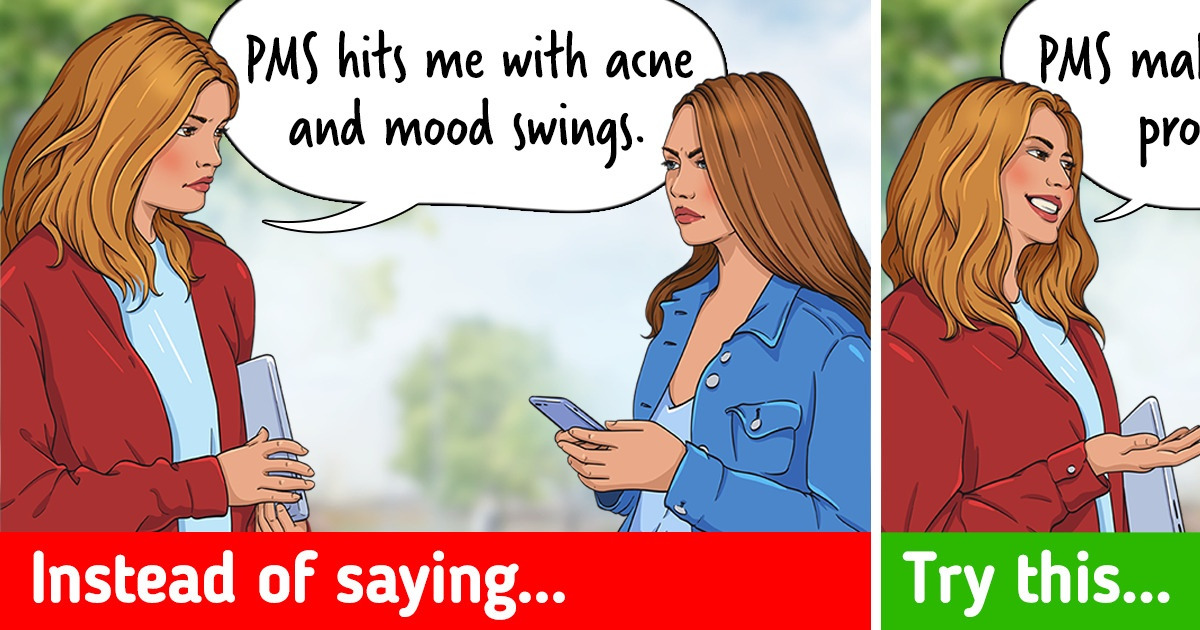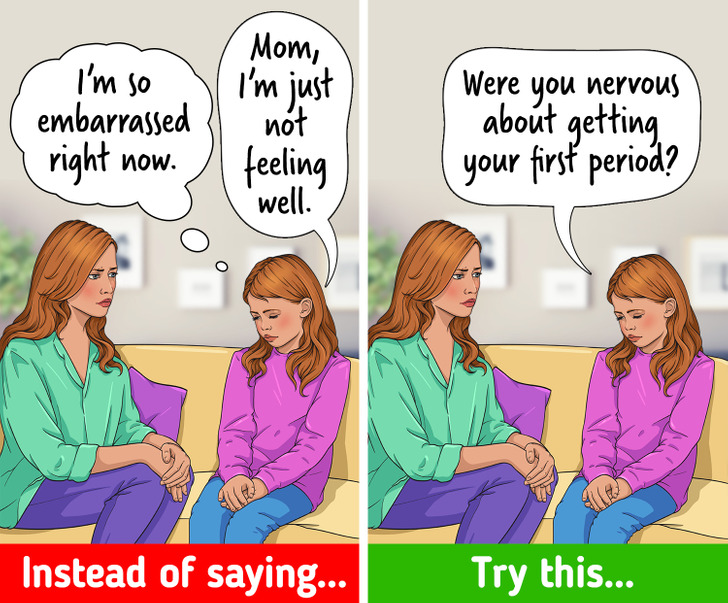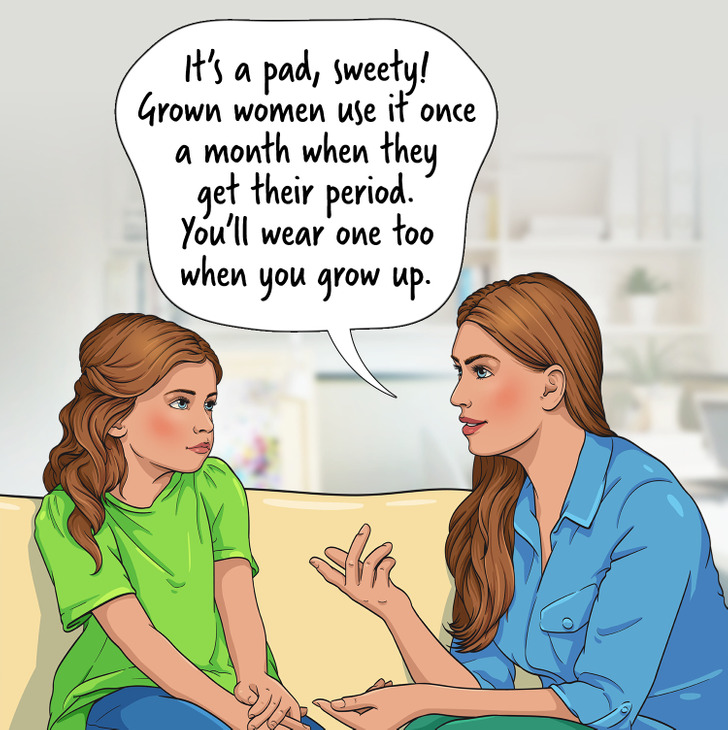How to Talk About Menstruation

Menstruation is deemed a taboo topic for conversation. In these modern times, it is slowly changing. Still, there is a slight stigma that comes along with casually talking about it, particularly with the opposite gender. So to contribute to removing this stigmatization, 5-Minute Crafts has brought forth a guide for how to discuss periods comfortably with an adult, friend, spouse, someone in the workplace, and even with your kids. We have something for everybody.
With your parent or relative

Your adult family members will possibly be the first people to know when you get your first period. And since adults are familiarized with it, they can be supportive. There are cases too where they belong to a different generation and may consider the discussion of periods a taboo. Here are a few things you can try:
- You can casually ask your mom, “When you were younger, were you nervous about getting your first period?” She’ll understand what you mean.
- If you’re reluctant about having a face-to-face conversation, you can also try leaving them a note, text, or email. And when they read it, they can start a supportive conversation with you.
- Or if you are way too straightforward with conversations, you can ask them, “Why do you think that our culture doesn’t allow us to talk about menstruation? It’s a normal bodily thing.”
- Another bonus idea you can try is to ask a male member of your family to buy you tampons.
With your friends

As we mentioned above, periods are natural, meaning that this topic of discussion may sometimes come up in ordinary conversations with friends. Understand that the more this topic is discussed with your friends and the more you share your experiences, the more the topic will be normalized within your circle. And they will also understand that periods aren’t gross, they’re normal. Here are some tips you can try:
- Share some positive experiences you’ve had when you had your periods, they don’t have to be negative all the time. For example, try sharing some positive symptoms of PMS like the increased perception of your surroundings, increased creativity, and a lot more.
- You can also try sharing weird or unexpected experiences you faced during your last menstruation cycle, like when periods usually show up when you travel, etc. And then ask them if they went through the same thing.
- If you feel awkward having this discussion with your guy friends, then begin talking to men who are closest to you, who you can be vulnerable around. This helps you be at ease and makes it normal for you to discuss periods with your male friends, colleagues, and even family members. You can use scientific terms like uterus, egg, menstrual pads, etc. to make them understand there’s nothing to be ashamed of.
At work

It can sometimes be challenging to talk about periods at your workplace. But there are many ways you can try to normalize menstruation in your office, like:
- If you want to take a day off because of cramps, and someone asks the reason why then tell them the truth fearlessly. Be upfront about it and say that you had cramps or you had PMS, and then carry on. You can also ask for adjustments to your work hours or location when you’re menstruating or you can ask your company to put paid menstrual leave in place too.
- If you want to go to the restroom, instead of hiding your menstrual product in a big bag, hold your tampon boldly in your hand and carry it to the restroom. There’s no need to hide it.
- You can also suggest to your manager that they stock tampons and pads openly in bathrooms. Not only in women’s restrooms but in the shared and gender-neutral restrooms too. When menstrual products are kept out in the open, men get used to seeing them and it will help normalize menstruation in general.
- Speak up when someone creates inappropriate jokes or uses demeaning language to talk about women or menstruation.
With someone you’re dating

When you are in a relationship with a person who doesn’t menstruate, avoiding a talk about periods is challenging. Hence, be open to sharing with your partner that you are on your period and help them understand how the menstrual cycle works. Explain everything that is involved in the cycle to them and also share how your skin and your energy levels change during the phases of your menstrual cycle.
With your kids

Conversations about periods with your kids don’t have to be a singular communication at a particular time and age. It is recommended that this discussion must be spread out at different stages and over multiple conversations so that the child can develop their understanding about periods.
You can begin the basic discussion on periods when they’re 6-7 years old. If they don’t ask questions, then try bringing it up naturally when they’re asking about puberty, body changes, where babies come from, or when you buy menstrual products.
For instance, when your kid sees a tampon and asks what it’s for, then you can try explaining it to them in basic terms, in a way that they’ll understand. Kids must be prepared for their body changes before they hit puberty so that they’re aware of how to deal with these changes.
- If you’re uncomfortable discussing periods with your kids, then find other ways to ensure that they have the information. Maybe watch a video with them or read a book together. You can also ask their school counselor, doctor, or a trusted family member to talk to them about menstruation.